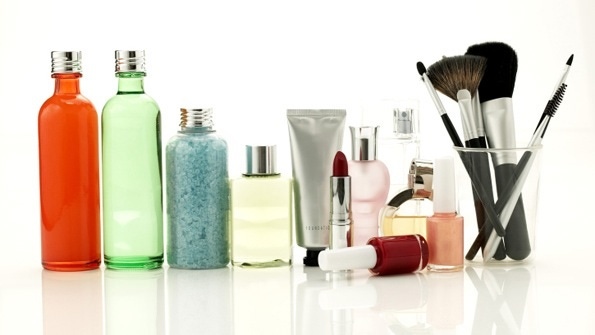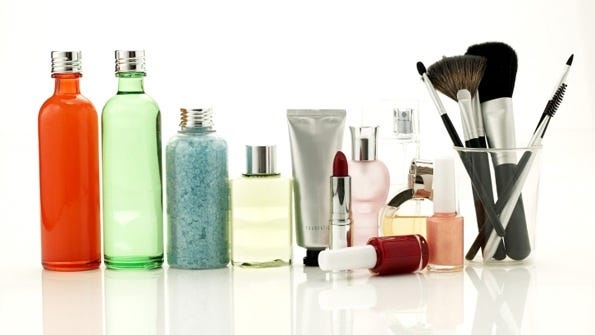How to screen organic beauty products in your store
Jaclyn Bowen, General Manager of Quality Assurance International (QAI), breaks down the most important tips for stocking your store with personal care products your customers can trust.


Many of your customers may already be aware of greenwashing in their kitchen—cleaners marketed as eco-friendly yet contain ingredients that may be harmful to them or the environment. But it's also a major problem in the bathroom.
According to an EcoFocus Worldwide study, 48 percent of consumers find it important to choose green toiletries, and 33 percent find it important to choose green cosmetics. The study also showed that 85 percent of consumers are “consumers who care” – shoppers who consider the environmental impact of products prior to purchasing.
With more consumers today looking for safer personal care products, the organic personal care sector is one of the largest growth areas in the industry, expecting to reach $11 billion in global sales by 2016. With so many companies making claims that their personal care products are more eco-friendly, it’s important to understand how to differentiate between these claims and avoid greenwashing as you’re stocking your health and beauty department.
Don’t let packaging mislead you
Although it’s important to read labels, don’t be swayed by packaging. Because manufacturers know that consumers are looking for more environmentally products, many choose to package their products in recycled materials, green-colored packaging or they may even include environmentally friendly-looking images on the product label. However, this doesn’t necessarily mean that the product is healthier or safer than other brands.
Look behind label claims
It’s not uncommon for shoppers to see claims that a personal care product contains green, natural or nontoxic ingredients. While these claims may sound good on the surface, in reality there are no government standards that currently define what these terms truly mean when used on the labels of these products.
“Free of” claims
Claiming that a product is free of a particular ingredient is another common way that manufacturers advertise or try to differentiate their products from competitors. While claims that a product is free from certain ingredients can be very important to individuals who have allergies, it’s important to read the full label to make sure that this type of claim isn’t an attempt to draw attention away from the presence of other ingredients or processes used in the production of the product.
Look for certification
An independent survey conducted on behalf of NSF International in 2012 found that 50 percent of “consumers who care about the environment” and 39 percent of the general population want to see independent certification marks on organic products, including personal care products claiming to contain organic ingredients. But what certifications are currently available for personal care products?
While many organic shoppers are familiar with the U.S. Department of Agriculture’s National Organic Program (NOP) for organic foods, these standards wouldn’t apply to most organic personal care products unless those products are produced from agricultural ingredients.
This conundrum of how to make an organic lipstick or shampoo essentially containing only edible organic ingredients or substances approved by the NOP for use in organic foods created a need for a new, separate standard for some types of personal care products.
NSF/ANSI 305 Standard: Personal Care Products Containing Organic Ingredients was completed in 2009. This American National Standard defines labeling and marketing requirements for personal care products that contain at least 70 percent organic ingredients and that are intended to be applied to or used externally on any part of the body (e.g. hair, face, hands and feet), including:
Cosmetics
Rinse-off and leave-on hair care products
Oral care products and
Personal hygiene products
What differentiates NSF/ANSI 305 from current NOP regulations is that it allows for organic ingredients to undergo certain chemical processes not recognized under the NOP. But like NOP regulations, this standard includes requirements for organic ingredients, materials, process and production specifications and labeling. Products certified to NSF/ANSI 305 are not eligible to bear the USDA organic seal, but they can use the NSF “contains organic ingredients” certification mark.
The bottom line
When buying a personal care product, don’t look for empty label claims. Instead, look for products that have independent certification either to USDA National Organic Program regulations or NSF/ANSI Standard 305. Both certifications provide transparent claims for trustworthy products and help assure shoppers that the personal care product is both functional and contains truly organic ingredients as listed on the label. Beyond health concerns, organic personal care products certified under both of these programs are produced utilizing natural resources more efficiently with better plant-growing methods while limiting waste that would otherwise cycle back to the environment.
About the author
Jaclyn Bowen is the General Manager of Quality Assurance International (QAI), part of the NSF International family of public health and safety companies. NSF develops American National Standards through a transparent, consensus-based process with representatives from industry, consumer groups, regulatory bodies and academia. For more information, contact [email protected].
About the Author(s)
You May Also Like




